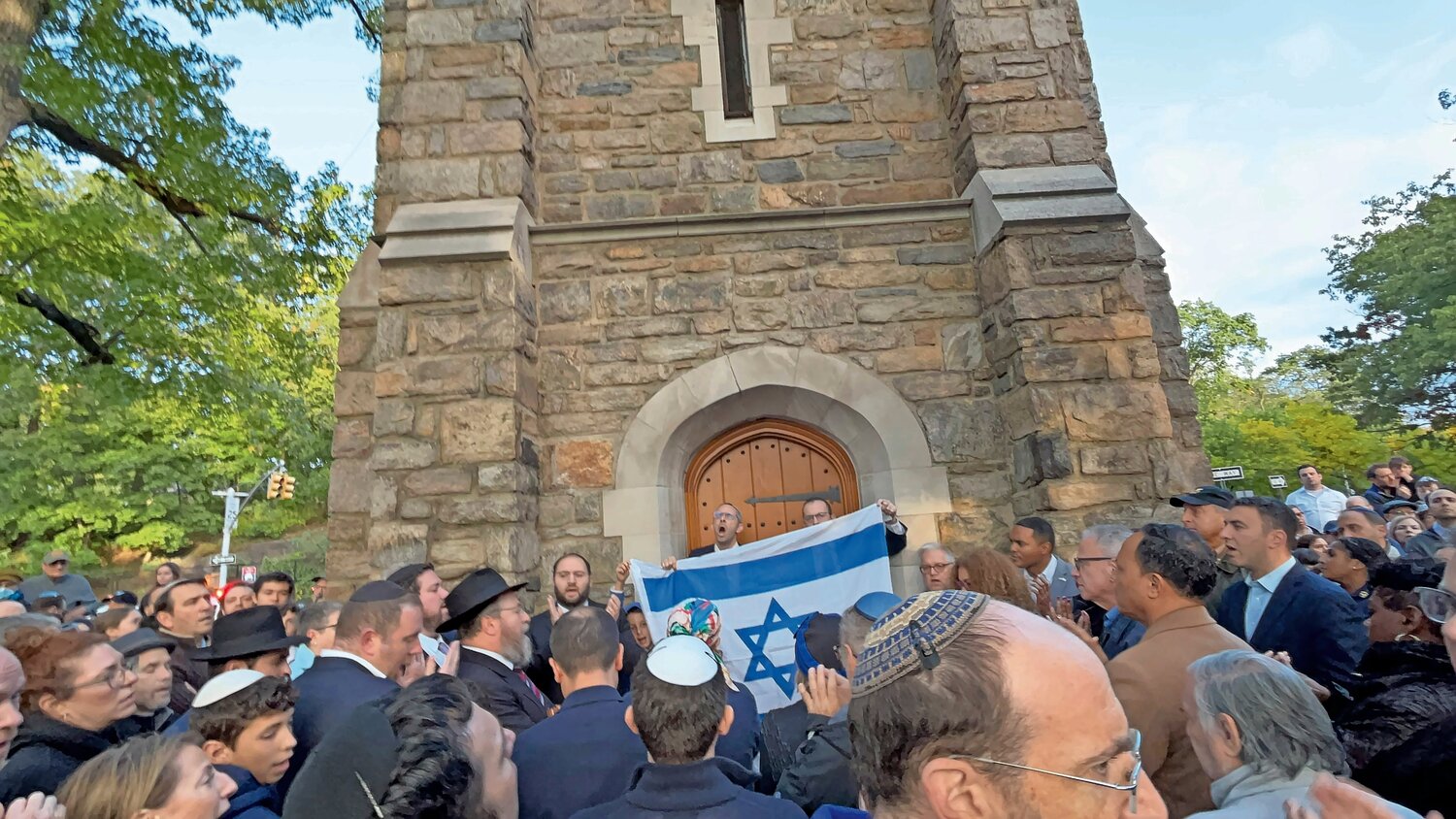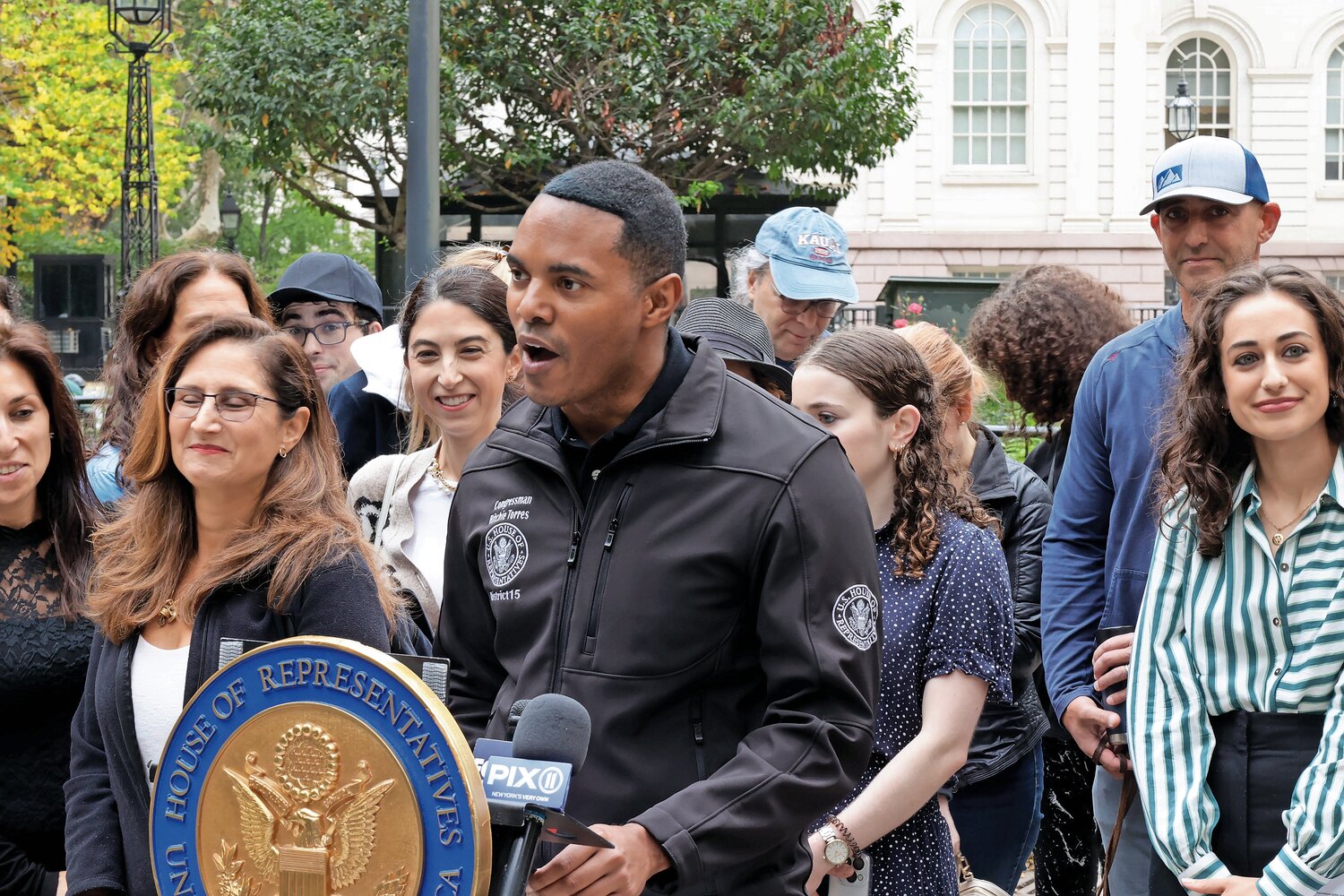What is the resolution to the Israel-Hamas war?
Some say removal of Hamas, hostages release or ceasefire
An end to the Israel-Gaza conflict is not yet in sight. As war rages on and hundreds of innocents are being killed every week, elected figures and activists have continued to propose solutions to help victims of the war and put an end to the bloodshed that began on Oct. 7.
Some of the solutions that have been tossed out are a permanent ceasefire, the removal of Hamas from power and the one or two state solution. U.S. Rep. Ritchie Torres has continued to say that there should be three operations unfolding at once.
“There should be a military operation to remove Hamas from power so there’s no longer a repeat of Oct. 7,” Torres told The Riverdale Press. “There should be a humanitarian operation to bring humanitarian aid to Palestinian’s in distress. And there should be a diplomatic mission to secure the release of the hostages.”
There were reportedly 253 hostages taken by Hamas on Oct. 7. Of those taken, 121 were released and 132 remain captive in the Gaza strip, AP News reported.
“There’s a real need for the international community to pressure Hamas to release the hostages, surrender unconditionally and end a war that has led to untold suffering among Israelis and Palestinians,” Torres said. “The war is a tragedy (and) a humanitarian crisis.”
SAR Principal Rabbi Binyamin Krauss favored the three operations Torres suggested. The attack on Israel, which reportedly killed 1,200, was one that hit close to him. He said that two of his acquaintances’ sons in law lost their lives this week.
“I think this conflict can and should end,” Krauss said. “But it can’t end with the (132) hostages held for over 100 days.”
Some strides for peace were made last December when Israel and Hamas took a temporary seven-day ceasefire to exchange hostages and prisoners. BBC reported that Israel released 240 Palestinians from Israeli jails while Hamas released 110 hostages from Gaza, the most Israel retrieved since the start of the war.
While that was successful to an extent, Israel accused Hamas of violating the terms of the agreements by not releasing all the women prisoners. Meanwhile Hamas accused Israel of refusing to accept all offers to release the other hostages, BBC reported.
Several city electeds have been consistently calling for a permanent ceasefire, including U.S. Reps. Jamaal Bowman, Alexandria Ocasio-Cortez, and Nydia Velázquez. The notion of such a ceasefire has been scoffed at by local electeds.
“There was a ceasefire on Oct. 6 and it was broken once again by Hamas, and they’ve repeatedly said they’re going to keep doing this,” Assemblyman Jeffrey Dinowitz told The Press. “So people who demand a ceasefire are now saying ‘ok, Israel stop so Hamas can attack you again.’”
Dinowitz questioned if those calling for a ceasefire would have done so for the Pearl Harbor or 9/11 attacks. He said that those who described Hamas’ attack as an act of resistance are making excuses for Hamas.
“If they didn’t attack Israel that day, none of this would have been happening. None of it,” He said. “The blame for the loss of innocent civilians of Gaza falls directly at the feet of Hamas terrorists. There’s no other way to say it.”
Several members of the North Bronx Racial Justice have also called for a ceasefire, including having Hamas lay down their arms, as well as an end to the U.S,.’s support to Israel in the conflict.
“We have to have a ceasefire immediately,” said member Margery Freeman. “That’s the thing being called for worldwide. It’s being called for by many people in this country as well. The idea of stopping this fight, stopping the killing, that has to be the first thing that happens. We can’t continue to kill people and then talk about what the solution’s are, we’ve gotta stop it first.”
As of press time, the IDF has killed over 24,000 people in Gaza, marking one percent of the population in Gaza, according to the Gaza Ministry of Health.
Steve Siegelbaum, NBRJ and Jewish Voice for Peace member, told The Press, “I find it maybe the greatest irony of history, that a people who have been grievously oppressed for a couple thousand years, the Jewish people, oppressed virtually wherever they have been… I find it horribly ironic that those people now inflict that kind of oppression on the subordinate people where they are in control, I.E. the Palestinians. And I worry as a Jew, I worry that an outcome of what’s going on will be that for decades, maybe even longer, Jews will be thought of in the same sense that Germans were thought of after World War II.”
A long-term solution
When asked for his thoughts on the current Israeli settlement expansion in the West Bank, Torres said he opposed it since it undermines the two state solution.
“For me, the progressive outcome is not the existence of a Jewish state to the exclusion of a Palestinian state, nor is it the existence of a Palestinian state to the exclusion of a Jewish state,” Torres said. “The progressive outcome is the coexistence of both a Jewish and Palestinian state, a two state solution.”
Torres said that he opposed any policy or practice that undermines the two state solution, including the BDS movement.
Freeman similarly supported the two state solution, saying that both countries should be in a place where they can support their citizens and are given the right to self-determination.
The coordinator of NBRJ, Jennifer Scarlott, told The Press she supported the one state solution, which envisions a free and Democratic nation in which all people have equal rights.









